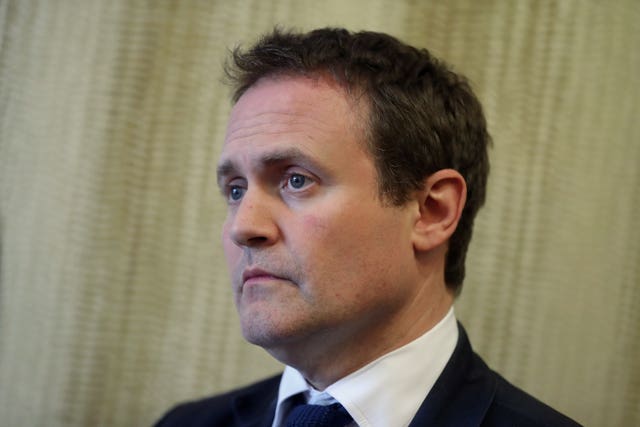Huawei decision expected as PM chairs National Security Council
The US has warned the Government against allowing the Chinese tech giant a role in Britain’s 5G upgrade.

Prime Minister Boris Johnson is expected to make a decision on whether to allow Huawei to play a major role in Britain’s 5G network amid concerns from the US.
The Prime Minister is due to chair a meeting of the National Security Council on Tuesday as he mulls over whether to grant permission for the Chinese technology giant to have involvement in the roll-out of the country’s communications upgrade.
A decision on Huawei is due by the end of the week.
The implementation of 5G is expected to bring with it download speeds 10 times faster than what 4G currently offers.
A number of senior Conservative MPs also voiced concerns during an urgent question in the House of Commons on Monday.
Former Tory leader Sir Iain Duncan-Smith said it was “utterly bizarre” to be considering giving Huawei the green light, while Tom Tugendhat, chairman of the Commons Foreign Affairs Select Committee in the last parliament, warned that the UK would be “allowing the fox into the hen house” if it gives the company 5G access.
Mr Johnson stressed on Monday that he would not “jeopardise” the UK’s security relationship with the US.
They warned that the Chinese state could put pressure on Huawei to divulge information about the UK’s 5G communications make-up.
The PM has claimed it would be possible to give Britons access to “fantastic technology” while also protecting “key partnerships with other security powers”.
US Secretary of State Mike Pompeo described the choice facing the National Security Council as “momentous” in a last-ditch plea to ministers.

The US administration has previously urged allies in the Five Eyes intelligence community – made up of the US, UK, Canada, Australia and New Zealand – not to use Huawei, claiming it would be a security risk – something the company vehemently denies.
But Mr Johnson told reporters on Monday: “There’s no reason why we shouldn’t have technological progress here in the UK, allow consumers, businesses in the UK to have access to fantastic technology, fantastic communications, but also protect our security interests and protect our key partnerships with other security powers around the world.”
He retweeted a comment by Mr Tugendhat, in which the MP said: “The real costs will come later if we get this wrong and allow Huawei to run 5G.”
Mr Pompeo added: “British MP Tom Tugendhat gets it right: ‘The truth is that only nations able to protect their data will be sovereign’.”
Washington’s ambassador to the UK, Woody Johnson, said Mr Tugendhat’s point was “undeniable”, adding that “doing 5G right goes beyond data ‘mitigation’ – it’s about national sovereignty”.
Tory MP Bob Seely said data privacy issues needed to be considered.
He told the BBC: “People are going to be concerned when they find China is collecting data on them.
“We can control Facebook and we can influence Google because they are Western companies that operate under Western law, China isn’t.
“We need good relationships, but it is also true that China is building a surveillance state, the kind of which the world has not seen.
“And I don’t think we have thought through what that means for the next century in terms of human freedom and data privacy.”





